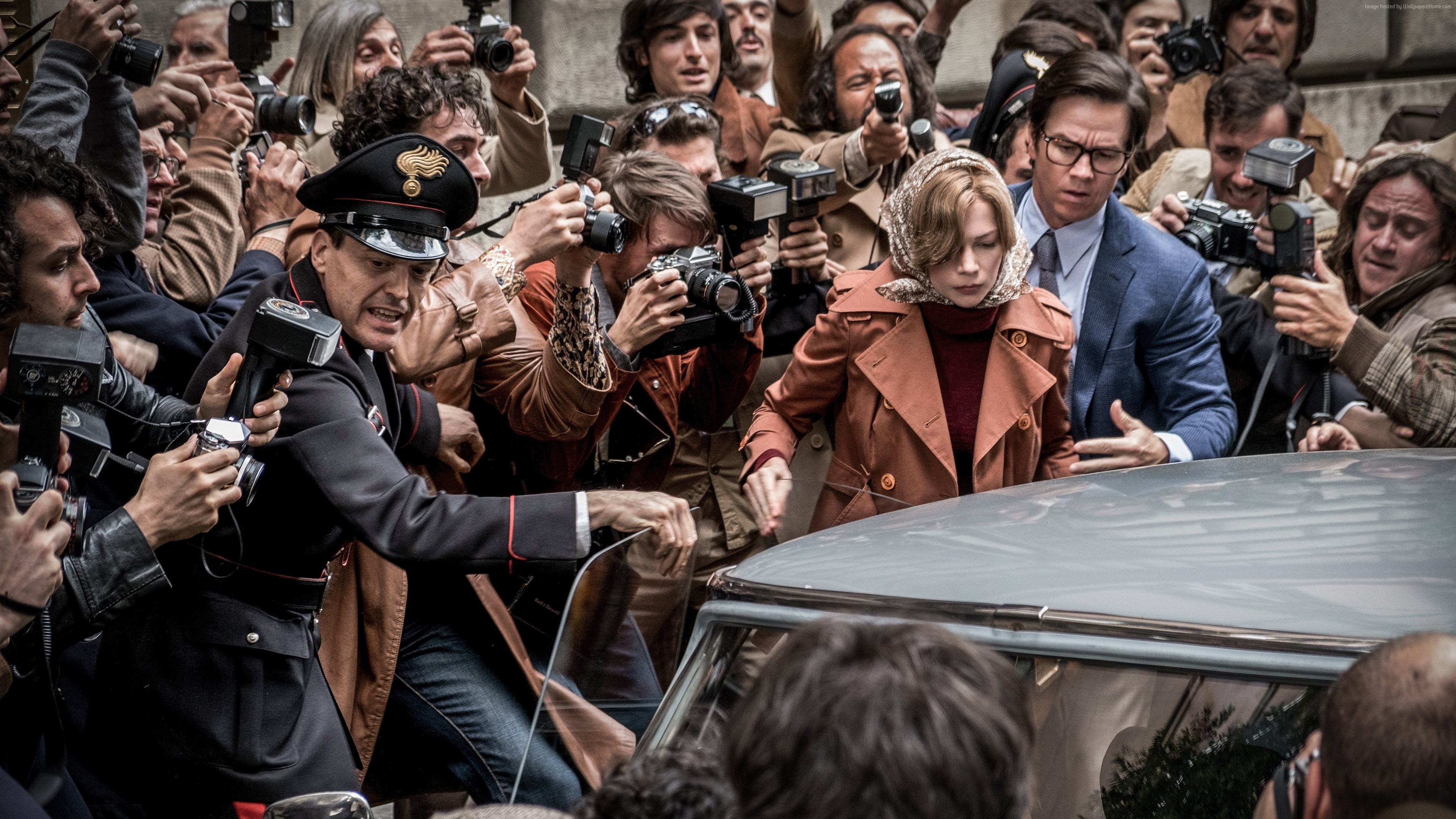
All the Money in the World is the retelling of the 1973 kidnapping of John Paul Getty III (Charlie Plummer) and the saga to recover the teenager from his Italian kidnappers. After his mother Gail Harris (Michelle Williams) cannot convince her ex-father in law and Paul’s grandfather the oil tycoon and world’s richest man J.Paul Getty (Christopher Plummer) to pay the ransom, she must struggle to figure out a way to find her son alongside J.Paul’s security head Fletcher Chase (Mark Wahlberg).
What struck me most about the film was how different it was having the film’s villain be money and its evil deed being what it drove people to do. Paul’s life came to hang in the balance, caught between two entities that have come to value riches over all else; his grandfather J.Paul and his kidnappers. Juxtaposed to this are his mother and in an interesting turn, one of his kidnappers Cinquanta (Romain Duris). What differentiates Gail and Cinquanta from Paul’s greedy tormentors on both sides is that the former recognize humanity and its worth. J.Paul comments in the film that he values things over people because things remain static in their relationship to while people change and can turn on you. But J.Paul’s cynical outlook turns people into things with which he can no longer empathize or feel for, other than a sense of possession. The film makes the point that connecting with people allows someone to see their full worth. Cinquanta builds an unlikely rapport with Paul by asking him about himself while guarding him. By doing this, he begins to identify him as a human being and not just a ticket to riches, altering the way they interact over the course of the film. Gail’s motherly bond is the ultimate example of fully recognizing someone’s entire worth and is what sustains her as she works to overcome all obstacles and reunite with her son. The film’s message presents both the dangers and the seeming antidote to unfettered greed.
One scene that particularly struck me followed the time immediately following Paul’s kidnapping. Cinquanta expressed bewilderment at Americans’ seeming disregard of family. For him as a Calabrian, his familial lineage is everything, it determines his entire life’s path. I couldn’t help but think that the same is true in America, just not how he thinks. Familial lineage also means everything here and determines our life’s path but with American culture, it’s more about the wealth attached to the lineage and how that determines where people can go.
While the themes of the film are prescient and timely, the film doesn’t offer anything extraordinary outside of the exploration of them. The tension presented is good in spots, notably the moment when Gail is told that Paul’s body has been found and the subsequent identification; the moment where Paul’s kidnappers decide to send proof of capture; and the moment when Paul is evading his kidnappers while his mother and Fletcher are simultaneously trying to find him. But outside of these instances, the film just moves the story along while presenting these overall themes. This isn’t necessarily a bad thing as the viewer is never really bored or taken out of the film but you never feel entirely grabbed and entranced either.
In terms of the film’s acting performances, Michelle Williams shines brightest as Gail, the mother who stays strong and determined in her effort to get her son back while navigating the insanely greedy politics of her former family. Williams becomes completely engrossed in the character, really selling her struggle and predicament and becoming 100% believable. Christopher Plummer does well as J.Paul Getty, particularly in light of the extraordinary circumstances surrounding his casting. Following the sexual harassment scandal of the original actor in the role Kevin Spacey, Plummer was hired and re-shot the scenes one month before the film’s release. That he is integrated into the film so seamlessly is a testament to the skill and professionalism of both he and director Ridley Scott (the fact that he wasn’t cast in the first place is an indictment of studio interference; Scott wanted him as J.Paul initially but Sony Pictures wanted a bigger name and suggested Spacey, which is why the suits should just let creatives create). However, I can’t help but wonder if the resulting Oscar for Plummer is due more to the backstory of his ending up on screen than his actual performance. He is great and certainly believable as the embodiment of a greedy plutocrat but I’m not certain it’s one of the year’s five best supporting performances from an actor.
All the Money in the World is an interesting and timely dive into the question of where greed leads human beings and how the spell of money can possibly be broken. While the tension and conflict in the thriller aren’t consistent throughout the film, there is enough present that, when coupled with the performances, overarching theme, and story itself, the film establishes a level of quality that makes it a worthy watch.
Image: TriStar Pictures

